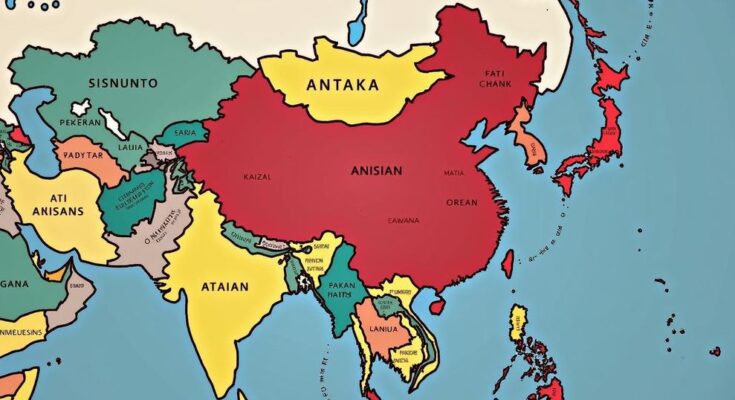This article explores the growing support for the Draft Articles on Crimes Against Humanity among Asian states, as articulated through AALCO records. It emphasizes the importance of collaborative discourse in international law, particularly in light of recent developments at the UN General Assembly’s Sixth Committee. The piece underscores the necessity for a unified response among Asian nations to enhance their capacities in preventing and addressing crimes against humanity, highlighting the shifts in individual state positions, and calling for AALCO to incorporate these discussions actively in its agenda.
The recent advancements concerning the Draft Articles on the Prevention and Punishment of Crimes Against Humanity within the framework of the United Nations General Assembly’s Sixth Committee highlight the increasing attention dedicated to this issue among Asian states. Following the adoption of the Draft Articles by the International Law Commission in 2019, the subsequent lack of a consensus had obstructed progress until the recent cross-regional resolution (Res. 77/249) facilitated resumed discussions in 2023 and 2024. This article scrutinizes the Asian-African Legal Consultative Organization’s (AALCO) records that articulate the perspectives of Asian nations towards these Draft Articles and align their positions within the broader UN discussions. Originally established in 1956, AALCO has evolved to include voices from both Asia and Africa, functioning as a forum to express legal and policy stances on international law matters pertinent to its members. The inclusion of this topic in discussions among its 47 member states and 2 observer states becomes imperative, as these discussions contribute to a unified response to the crimes against humanity issue at the global level. Recent positioning indicates a shift among certain Asian nations. While Malaysia had previously expressed skepticism regarding the necessity of a specialized convention, it has now shown support for advancing the Draft Articles. Similarly, Thailand has indicated a favorable stance, emphasizing the potential for strengthening national laws and international cooperation to combat crimes against humanity. Conversely, Vietnam has adopted a more tempered position, advocating for further detailed analysis before committing to any recommendations. This evolution in perspectives signifies an increasingly supportive environment for the Draft Articles, though some reservations remain. Moreover, AALCO’s lack of recent discussion on the CAH Convention signifies missed opportunities for collective action. For the Draft Articles’ implementation, it is vital for member states to acknowledge the gaps in treaty law that these articles address. The obligations stipulated within the Draft Articles can empower nations to take preventive measures and ensure accountability, thereby enhancing their institutional capacities on this grave issue. Henceforth, it is encouraged that AALCO actively includes this topic in its work programme, capitalizing on the ongoing regional discourse. The potential for a fractured process in treaty-making underscores the importance of a united Asian bloc in these discussions.
The focus on Crimes Against Humanity (CAH) within the context of Asian states is gaining momentum due to growing advocacy for the International Law Commission’s Draft Articles. The Sixth Committee of the United Nations has resumed discussions on this critical issue, following a significant resolution that called for detailed analysis and engagement from member states. The AALCO plays a pivotal role in this discourse, acting as a platform to consolidate the legal stances of Asian countries on humanitarian law and related topics, reflecting their sensitivity to regional perspectives and needs in international law discussions.
In conclusion, while progress is evident in the dialogue surrounding Crimes Against Humanity among Asian states, there remains a crucial need for unified action through platforms like AALCO. The adoption and advocacy for the Draft Articles present an opportunity to bridge existing gaps in international law, thereby strengthening both domestic capacities and inter-state cooperation in addressing atrocities. The active involvement of member states is essential as they navigate the complexities of international legal obligations, ensuring that their collective voice resonates in the upcoming discussions at the UN General Assembly’s Sixth Committee.
Original Source: opiniojuris.org




